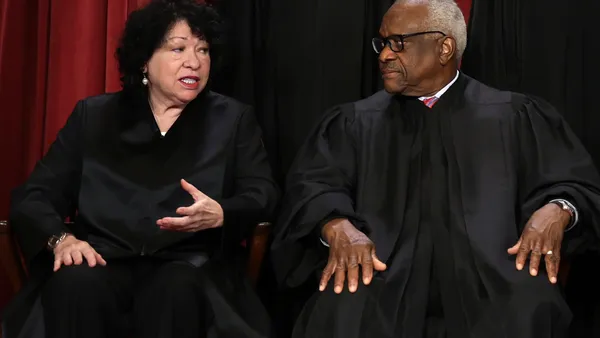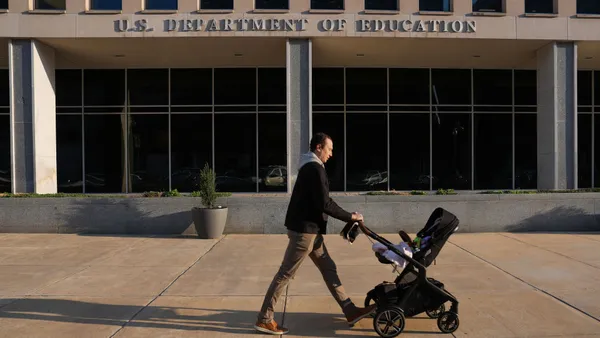Dive Brief:
-
President Joe Biden signed an executive order Monday — on International Women’s Day — directing the U.S. Department of Education to examine existing regulations, orders, guidance and other activities for consistency with the administration’s policy to guarantee an education free from sexual discrimination.
-
The order makes specific reference to the review of Title IX regulations, which address sexual harassment on K-12 and postsecondary school campuses. An update to the rule was issued by the Trump administration last year and opposed by K-12 school administrative organizations, which criticized its timing and substance.
-
If the Biden administration pursues changes to Title IX, it will likely go through a lengthy rulemaking process. In the meantime, school systems will need to stay compliant with the current regulations, say school attorneys.
Dive Insight:
The executive order directs the Education Department — within the next 100 days — to review Title IX plus other regulations and guidance to ensure those policies guarantee an educational environment free from sexual discrimination, including sexual harassment and discrimination on the basis of sexual orientation or gender identity.
Title IX could be modified through legislation or through formal rulemaking procedures that require public notice and comment periods.
William Zee, chair of the Education Law Group at the law firm Appel, Yost & Zee in Lancaster, Pennsylvania, said school administrators and staffs in the districts he represents have gone through extensive training on the requirements in Title IX.
“I think with K-12 schools, a lot of this was like trying to fit a square peg into a round hole, because many of the new procedures were not really aimed at K-12 issues. But K-12 schools were required to implement those changes, so that was a big shift for people,” he said.
For example, there’s been a lot of effort made to better understand the interplay between the Title IX rules and aspects of state procedural requirements and other federal K-12 education laws, such as the Individuals with Disabilities Education Act, particularly regarding discipline due process rights, Zee said.
Zee has noticed an increase in Title IX investigations, likely due to more awareness among the school community due to the training and policy change requirements in the regulations. “I think it sort of highlighted for the school populations that some of these behavioral infractions now had an official process to go through, and I think some of the things that maybe previously had been ignored or not pursued are now being pursued,” Zee said.
Attorney Bobby Truhe, with KSB School Law in Lincoln, Nebraska, said he is wondering how the administration will handle the potential intersection of the review of the existing Title IX rule and the executive order's focus on issues regarding fair and equitable programs for students who identify as LGBTQ, which may include the participation in gender-specific sports and use of gender-specific bathrooms and locker rooms.
“That’s where a lot of my clients have been confused” when parsing through the different guidance in the varying areas under Title IX, Truhe said.
The Trump administration issued updated Title IX regulations in 2020, saying the new rule would hold K-12 and postsecondary schools more accountable for reporting and investigating incidences of sexual assault, as well as provide due process rights for victims and alleged harassers. It was the first major regulation on Title IX in more than 40 years.
Additionally, the Trump administration said it was enhancing Title IX enforcement actions to combat sexual assault in K-12 schools.
While some elements of the 2,000-page regulation were universally accepted, such as giving K-12 schools flexibility in holding live hearings and cross-examinations, school administrative groups and Democratic state leaders opposed the rule, saying it put new and expensive burdens on schools at the same time they are responding to pandemic challenges. In the last few days of the 116th Congress, several lawmakers introduced a bill to prevent enforcement of the Title IX regulation, but the bill never made it to committee debate.
While the change in administrations has left open the possibility that the Title IX rule could be altered, that change likely won’t happen quickly, Zee said. “I think you're going to see the current administration really stay true to the administrative law process and go through notice and public comment procedures so that those sorts of criticisms are not lodged against any of the changes moving forward,” he said.







 Dive Awards
Dive Awards







